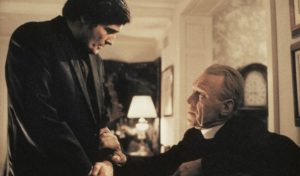
There is something eternally endearing about the romantic comedies that have graced our screens since the dawn of cinema. An almost cathartic exploration of love, loss and forgiveness, romantic comedies have carved out their own unique genre that is never short on stories or on viewers. However, not all romantic comedies reach the height of success, many becoming part of a forgettable factory of replication churned out for the most devoted. Yet, now and again, a film comes along that digs deep into the heart of love and trust, elevating beyond the static of repetition, and delivering something truly heartwarming. The latest to reach these heights is Peter Hutchings‘ Which Brings Me To You.
Which Brings Me To You
I had high expectations for this film, Hutchings‘ previous work The Hating Game an unexpected success. Yet, where The Hating Game found success deep in its romantic comedy, Which Brings Me to You goes deeper into the heart of love and loss, harnessing humor in the darkest of moments. Meeting at a mutual friend’s wedding, a night shared between Jane (Lucy Hale) and Will (Nat Wolff) slowly evolves from a need for sobriety and a flawed attempt at hooking up in a closet to a deepening examination of past relationships and the need for understanding and risk to move forward. Yet, Which Brings Me to You does not necessarily strictly focus on a shared risk and understanding between Jane and Will. Rather, the understanding of self builds the confidence to take the necessary risks in the pursuit of happiness.
source: Decal Releasing
As they begin revealing their past failed relationships in turn, Which Brings Me to You flows organically from one story to another, as does the filler and interactions fashioned in between them. At times, the film feels like a character study of love, its failings and pitfalls, as well as its need to move forward. It works to move beyond the traditional unity of its central duo, rather allowing us to fall in love with the idea of them at the same pace as they do for each other. Yet, Which Brings Me To You also becomes an examination of trust, not only in creating a relationship, but healing from those that have come and gone. Trust is mutually afforded in the most unexpected moments in life, and Jane and Will take the unintentional risk to unburden themselves in the safe space they create for each other.
Which Brings Me to You feels easy and breezy, the humor it weaves in and out of each of their stories giving the film a deeper dynamic and greater authenticity to their developing love story. There is a blending of past reenactments and present storytelling that helps the film avoid feeling disconnected and hollow, leaving the film to smoothly transition between each moment. Lucy Hale fills her romantic comedy role well, delivering a performance we have come to expect from her in these roles.
source: Decal Releasing
Yet it is Nat Wolff who remains truly endearing. There is something soft and welcoming in his performance. Where Hale‘s Jane feels impulsive, his Will feels ready to go for the ride, giving their chemistry an authenticity that will resonate with audiences. Yet, as endearing as his performance is, there is a rift just below the surface, heartbreak and desire for love that goes beyond any story, the final moments of his performance a lovely heartbreak of catharsis and desire.
Conclusion
Which Brings Me To You is a heartwarming romantic comedy that strives to reach beyond the simplicity of love matches and mishaps. It wants to examine the relationships that have made us, understanding they do not define us. And in the journey to unburden one’s self of the past, we just might find that trusting a stranger is the risk that could create our future.
Which Brings Me to You was released in theaters on January 19, 2024!
Does content like this matter to you?
Become a Member and support film journalism. Unlock access to all of Film Inquiry`s great articles. Join a community of like-minded readers who are passionate about cinema – get access to our private members Network, give back to independent filmmakers, and more.




